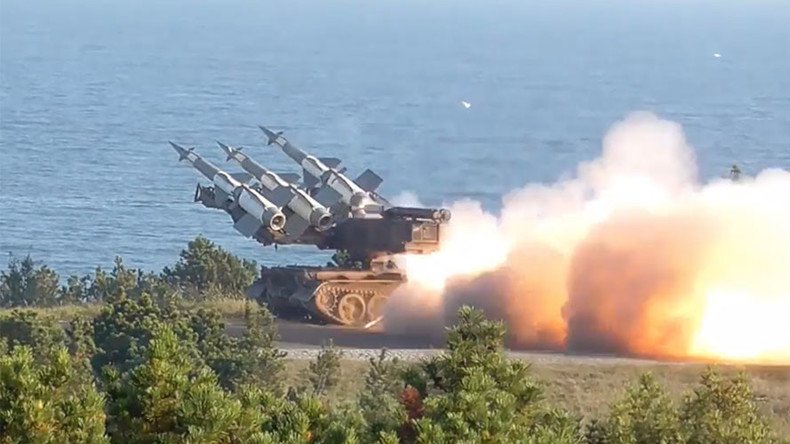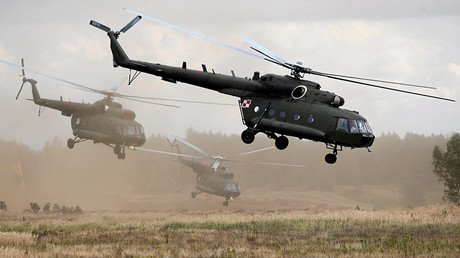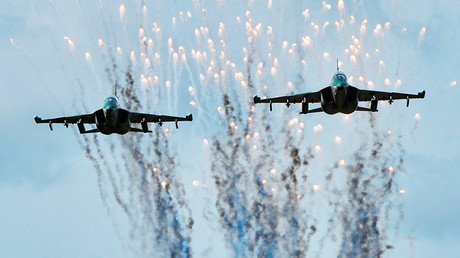Poland fires anti-air missiles as part of NATO Dragon 17 drills (VIDEO)

Polish armed forces have staged air defense exercises which involved test launching surface-to-air missiles as part of yet another massive NATO drill held in response to what the West perceives as the growing “Russian threat.”
The war games held in the coastal town of Ustka, located in northern Poland, included test firing air-to-surface missiles from the Newa SC air defense system, an upgraded version of the Soviet-built S-125 Neva/Pechora also known under its NATO reporting name, SA-3 Goa.
The Polish troops also practiced taking down drones from a 23-mm anti-aircraft cannon. The air defense drills formed part of the Dragon 17 exercises that kicked off on September 20.
Even though the drills were initially designated as Poland’s national exercise, Polish authorities invited about a dozen of its NATO allies to join the war games. The US, UK, Germany, Lithuania, Latvia, Slovakia, Italy, Bulgaria, Romania, as well as Georgia and Ukraine, which are seeking to join the bloc, took part in the drills that were particularly aimed at testing coordination between the Polish military and NATO forces in the face of the perceived “Russian threat,” according to the Polish Deputy Defense Minister Michal Dworczyk.
The Dragon 17 exercises by far outmatched the joint Russian-Belorussian Zapad 2017 drills that recently provoked a wave of anti-Russian hysteria in the West. The NATO military drills in Poland involve around 17,000 servicemen and 3,500 units of equipment, according to the Polish defense ministry.
In comparison, the Zapad 2017 drills that were held in Belarus and some Russian regions involved 12,700 troops, most of whom were Belarusians, as well as only 70 military aircraft, 10 vessels and 680 land vehicles.
Even though the Zapad 2017 drills were smaller in scale and the Russian and the Belorussian leadership tried their best to make them transparent by inviting some 90 foreign observers from 60 countries to monitor the exercises, the war games were still used to stir up anti-Russian sentiment in the West.
Polish Prime Minister Beata Szydlo said she was “very concerned” about the drills. Earlier, Lieutenant-General Ben Hodges, the commander of US Army forces in Europe, said it might be a “Trojan horse” to move troops and weapons.
Lithuanian President Dalia Grybauskaite even focused on the drills in her speech at the UN General Assembly in New York, warning that the “Kremlin is rehearsing aggressive scenarios against its neighbors.”
The Russian Foreign Ministry repeatedly slammed critics of the exercises, accusing them of fear-mongering, and emphasized the defensive nature and transparency of the drills that are staged every four years.
Poland, however, was not the only country that decided to stage its own war games in response to the perceived threat from its eastern neighbor. Sweden also held its own exercise in mid-September called Aurora 17. The drills became the largest such war games in over two decades for the Nordic country and involved a total of 19,000 Swedish troops, as well as 1,435 soldiers from the US.
NATO has also staged dozens of war games in the region over the past three years, some involving tens of thousands of troops. Moscow has repeatedly criticized the military alliance’s buildup on Russia's borders and called the NATO actions provocative. Russia maintains that it is compelled to answer with appropriate response to such aggressive moves.














